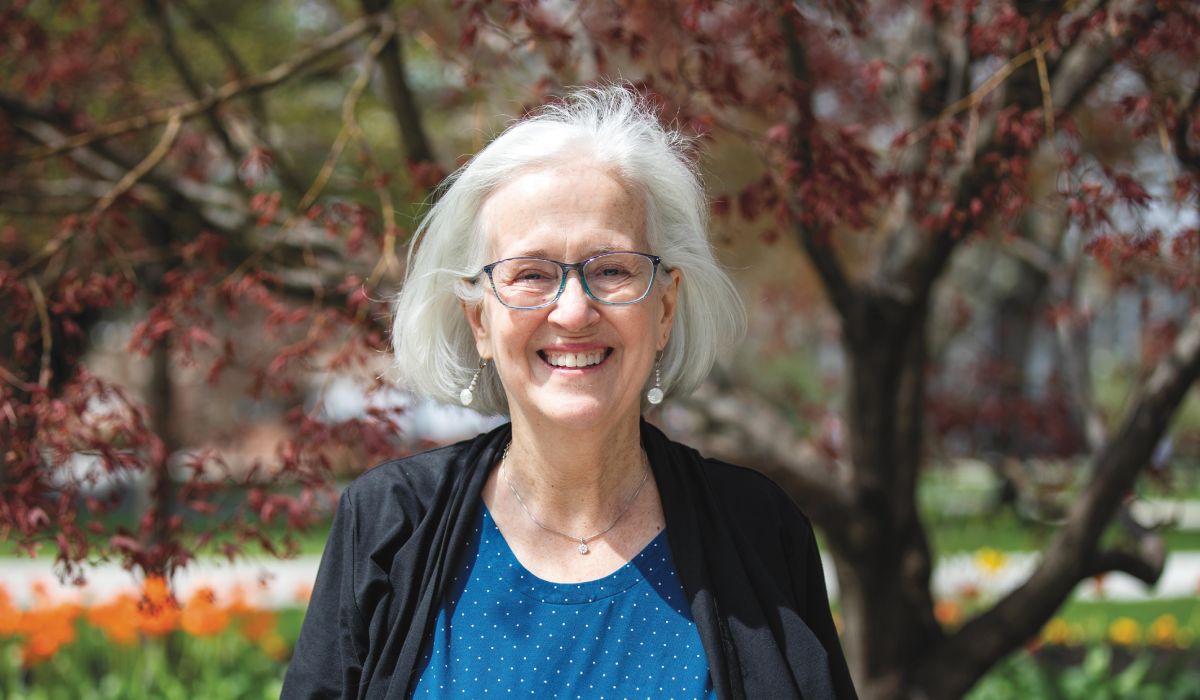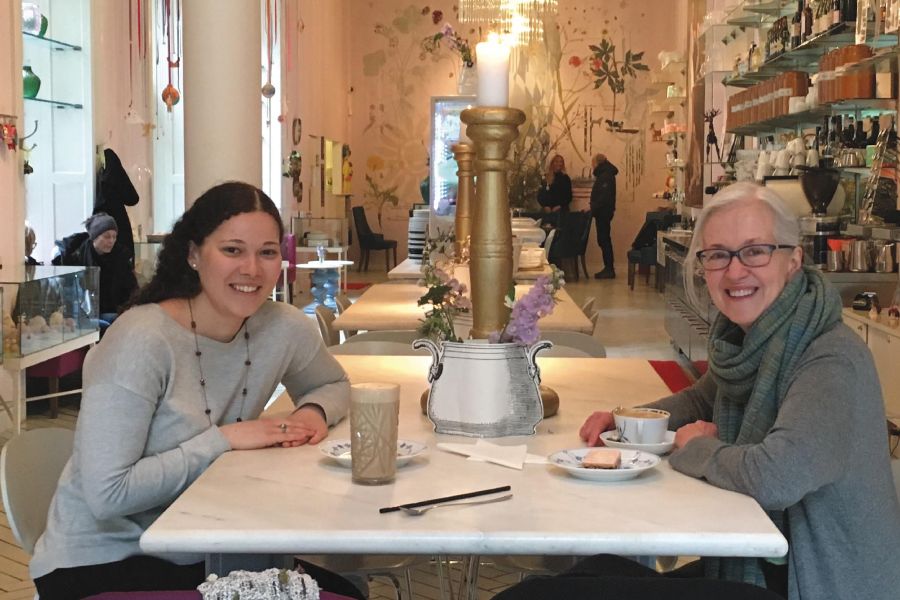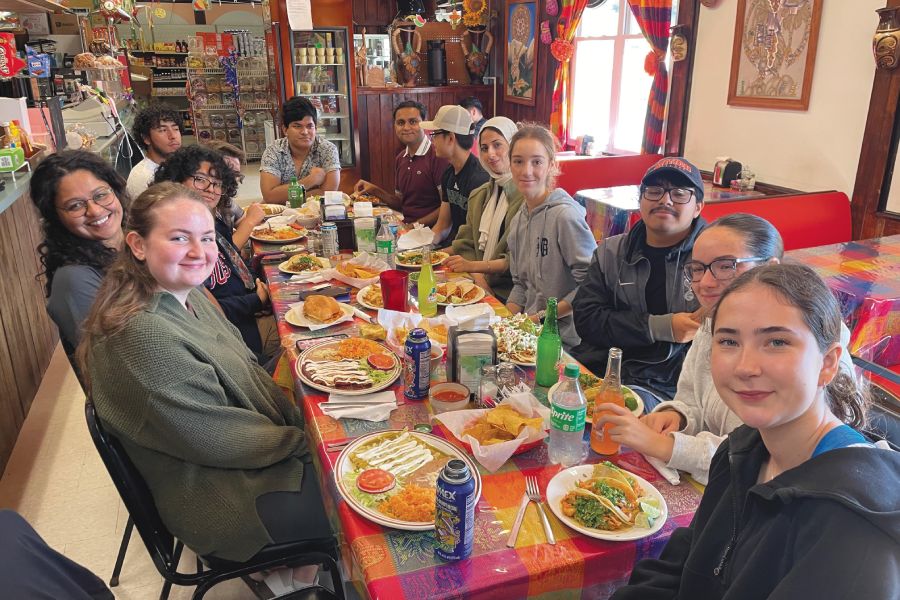
Growing up as the oldest of five siblings, Psychology Prof. Kathleen Cain always looked after her little brothers and sister. Her mother, formerly an obstetrics nurse, loved babies, and it is to her that Cain credits her interest in developmental psychology.
“There was always this sense in my family that kids and babies were really special,” Cain said. “I always wanted to be a nurse like my mom. Then, I went to an all-girls high school in the 1970s, and everything was changing for women. Some friends wanted to be doctors, and I was inspired to become one as well.”
Although she attended an all-girls Catholic high school, Cain described the Academy of Our Lady of Good Counsel as extremely progressive. One year, for the yearly required religion class, rather than being taught by one of the nuns overseeing the school, Cain and the other girls were taught how to do yoga while learning about Hinduism by one of the lay teachers.
“We were encouraged to be strong young women; it was very much part of the ethos,” said Cain.
While pediatrics was her original professional goal, Cain was inspired by Dr. Danuta Bukatko, her developmental psychology professor at the College of the Holy Cross in Worcester, Massachusetts, to pursue her own doctorate in psychology at the University of Illinois at Urbana-Champaign. There, she met Cindy Erdley Gardella ’86, a graduate student who always spoke about her experiences with Gettysburg College. Having babysat the children of President Emerita Janet Morgan Riggs ’77 and being heavily involved in the Gettysburg community, Erdley Gardella encouraged Cain to apply to Gettysburg as a psychology professor.
Although unsure at first, with her husband, Karl Lorenz, still in the process of obtaining a Ph.D. in anthropology at the University of Illinois at Urbana-Champaign, Cain decided to move to Gettysburg in 1990. Lorenz also taught alongside her for three years in the then-Department of Sociology and Anthropology before leaving to teach as a professor of anthropology at Shippensburg University. Since she moved to Gettysburg 35 years ago, Cain has seen an enormous evolution at the College over the years she has been teaching.
“We’ve always been a College that wants to do better, and I’ve seen tremendous growth in our ability to offer students ‘high-impact’ experiences, such as collaborative research with faculty, internships, and study abroad,” explained Cain. “Faculty and administrators have been very intentional about trying to give our students the best education possible, and I think that that education we offer has become stronger and stronger in my time here.”
In 2009, she departed Gettysburg with her family and traveled to Cairo, Egypt, as a Fulbright scholar. There, her research interest was piqued by the conversations she heard between her children and their friends, who attended an American-style high school with Egyptian American students, Egyptian students whose parents wanted them to learn English and have an American education, and American students like her children.
Cain’s primary research focuses on the growth mindset theory, social cognition, and identity development in children and adolescents. In Cairo, Cain was inspired by listening to her children and their classmates speak about current events, such as the possible construction of the Muslim community center Park51, formerly known as the Cordoba House, to branch into something new: the psychology of Muslim adolescents in the United States. Later, she expanded that research to include Muslim adolescents in Denmark.


Cain has brought students on numerous trips outside of a traditional classroom. England, Denmark, Ethiopia, and Nicaragua are just some of the many places she has traveled to with students. She also takes students on local trips, such as learning about agricultural communities and immigration in Adams County, Pennsylvania.
“I loved getting to know students in ‘real-world’ settings, and I also loved learning about our country and the world side-by-side with our students. I met many wonderful students through these experiences, some of whom I’m in touch with to this day. I learned so much from and with our students—how to see things with fresh eyes and think in new ways, how to be brave in new settings, how to listen carefully to people with different backgrounds from our own,” said Cain.
Retiring in 2026, Cain is looking forward to having more time to read for pleasure and get even more connected with her family members. With plans to write about her Irish grandmother who immigrated to America, Cain has no plans to stop learning and educating others anytime soon.